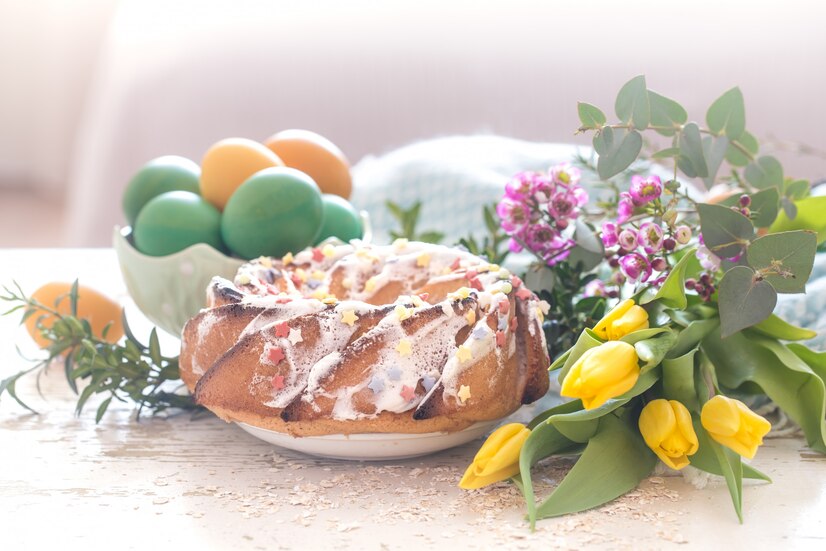The Magic of Easter
The magic of Easter…is when we immediately think of bunnies and egg hunts. In many places, families enjoy rich and varied Easter meals. Ham is a classic Easter dish in the United States.
Meanwhile, Europe often serves lamb for Easter dinner. People eat fish cakes, salmon, or sauerkraut on Good Friday in Germany. Many cultures also bake sweet Easter breads. Candied carrots are a favorite of the Easter Bunny. But where did these traditions begin?

The Easter magic has a rich and complex history mixing ancient traditions with Christian meaning. The name “Easter” comes from the Old English “Ēastre,” a spring festival honoring the fertility goddess Eostre. People held feasts and used eggs and rabbits as symbols of new life.
These traditions were eventually adapted by the early Christians. In AD 325 the Council of Nicaea set Easter’s date, choosing the first Sunday after the first full moon following the vernal equinox.
Christian communities shaped Easter traditions by using eggs to symbolize new life and resurrection. The Easter Bunny also became a sign of fertility. Then Churches began holding Easter parades, Vigils, and Sunrise services. As Christianity spread, local customs joined Easter celebrations. Folk traditions, special foods, and egg decorating became common worldwide. The beginning of Easter magic!
Today, Easter is one of Christianity’s biggest holidays. Families gather, attend church, and enjoy festive meals. It blends old fertility rites, Christian beliefs, and cultural practices that are still evolving today.

The Magic of Easter
The magic of Easter…is when we immediately think of bunnies and egg hunts. In many places, families enjoy rich and varied Easter meals. Ham is a classic Easter dish in the United States.
Meanwhile, Europe often serves lamb for Easter dinner. People eat fish cakes, salmon, or sauerkraut on Good Friday in Germany. Many cultures also bake sweet Easter breads. Candied carrots are a favorite of the Easter Bunny. But where did these traditions begin?

The Easter magic has a rich and complex history mixing ancient traditions with Christian meaning. The name “Easter” comes from the Old English “Ēastre,” a spring festival honoring the fertility goddess Eostre. People held feasts and used eggs and rabbits as symbols of new life.
These traditions were eventually adapted by the early Christians. In AD 325 the Council of Nicaea set Easter’s date, choosing the first Sunday after the first full moon following the vernal equinox.

Christian communities shaped Easter traditions by using eggs to symbolize new life and resurrection. The Easter Bunny also became a sign of fertility. Then Churches began holding Easter parades, Vigils, and Sunrise services. As Christianity spread, local customs joined Easter celebrations. Folk traditions, special foods, and egg decorating became common worldwide. The beginning of Easter magic!
Today, Easter is one of Christianity’s biggest holidays. Families gather, attend church, and enjoy festive meals. It blends old fertility rites, Christian beliefs, and cultural practices that are still evolving today.




